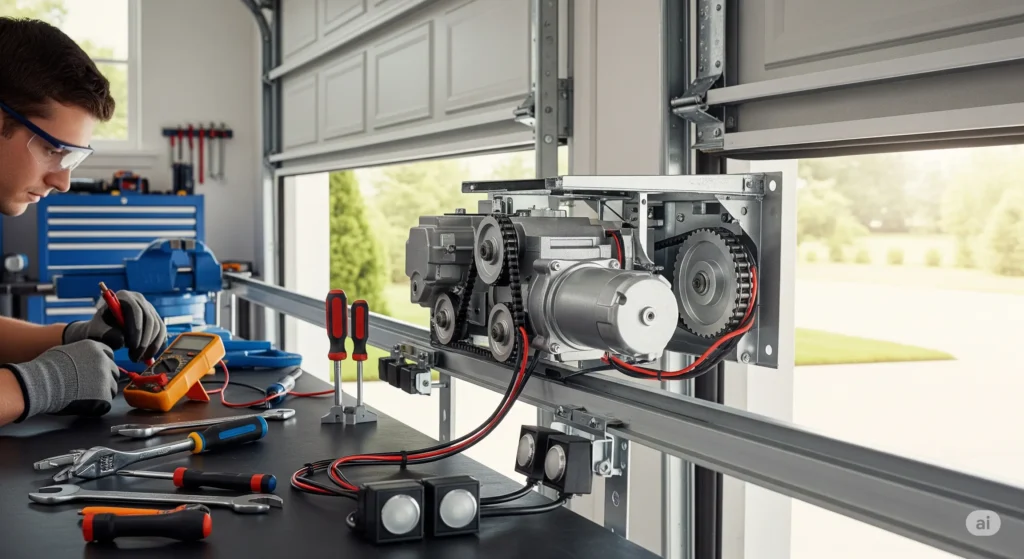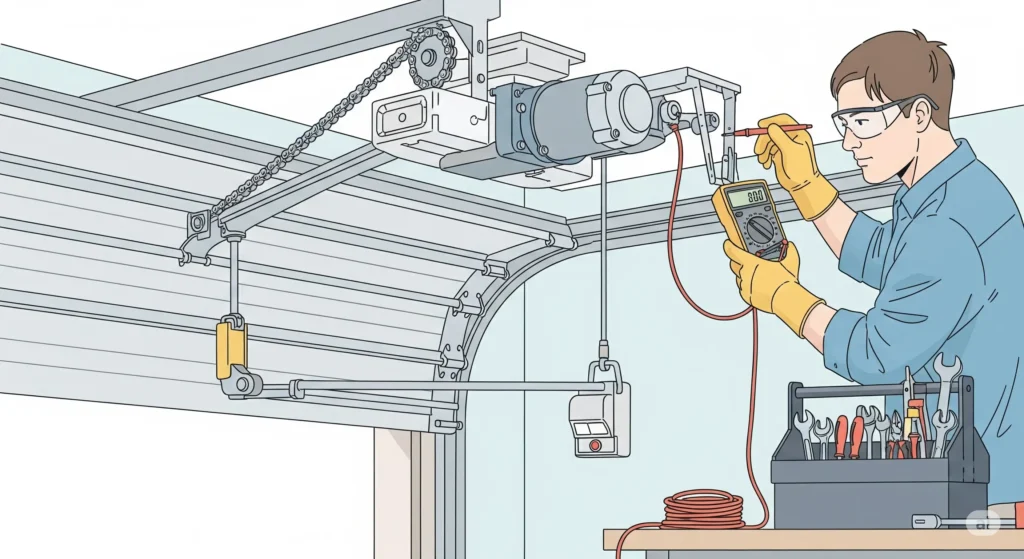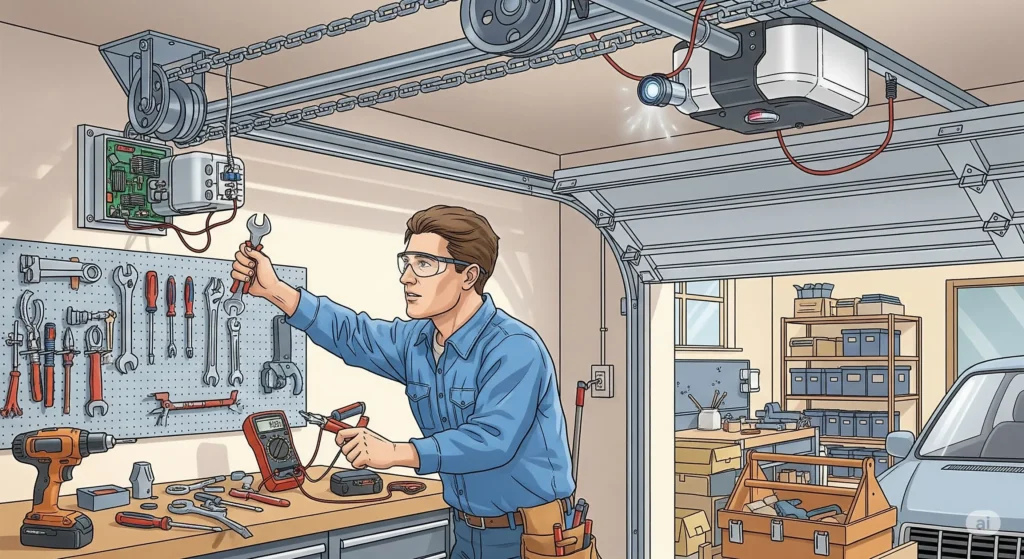Garage Door Motor Troubles? Easy Fixes to Save Time & Money

If you’ve ever been stuck inside (or outside) your garage because your garage door motor stopped working, you know how frustrating it can be. The garage door motor is the heart of your automatic door system — when it fails, your whole routine is disrupted.
This guide will help you understand how your garage door motor works, the common problems that can arise, easy troubleshooting steps, and when it’s best to call in the pros. By the end, you’ll know exactly how to handle motor issues before they cost you big money.
Understanding Your Garage Door Motor
What Does a Garage Door Motor Do?
Your garage door motor is the main power source that moves your garage door up and down. It converts electrical energy into mechanical motion, pulling or pushing the door through a chain, belt, or screw drive system. Without it, your garage door would be manual — heavy, slow, and inconvenient.
Common Types of Garage Door Motors
There are three primary types of garage door motors:
- Chain-Drive Motors – Affordable and durable but noisier.
- Belt-Drive Motors – Quiet and smooth but slightly pricier.
- Screw-Drive Motors – Fewer moving parts and low maintenance but not as quiet.
Each type has its pros and cons, so knowing which one you own can help when troubleshooting.
Signs Your Garage Door Motor Might Be Failing
Watch for:
- Strange grinding or clicking noises
- Door moving slower than usual
- Motor running but no movement
- Intermittent operation or failure to start
Common Garage Door Motor Problems
Motor Makes Noise But Door Doesn’t Move
This often means the drive gear is worn out or a part of the lifting mechanism is disconnected.
Door Opens Slowly or Stops Midway
Possible causes include misaligned tracks, weak motor performance, or obstructions.
Motor Runs But Lights Flicker
This may be a sign of an electrical issue or power fluctuation.
Motor Doesn’t Respond at All
If pressing the remote or wall button does nothing, it could be a dead motor, tripped breaker, or faulty wiring.

How to Troubleshoot Garage Door Motor Issues
Step 1: Check the Power Supply
- Ensure the motor is plugged in
- Check the breaker box
- Test the outlet with another device
Step 2: Inspect the Remote and Wall Switch
Replace remote batteries, clean the contacts, and check wiring to the wall switch.
Step 3: Examine the Safety Sensors
Dirty or misaligned safety sensors can prevent operation. Clean them and realign if needed.
Step 4: Test the Motor Gears
Open the motor housing and check for broken or stripped gears. If damaged, they need replacing.
DIY Garage Door Motor Repairs You Can Try
Tightening Loose Components
Loose bolts, brackets, and fasteners can cause vibration and extra noise. Use a wrench to secure them.
Cleaning and Lubricating the Tracks
Dust and debris increase strain on the motor. Clean tracks with a damp cloth and lubricate moving parts with garage door grease.
Resetting the Motor System
Many garage door motors have a reset button or require unplugging for 30 seconds to reboot.

When to Call a Professional
Signs It’s Beyond a DIY Fix
- Burning smell from the motor
- Repeated fuse or breaker trips
- Loud grinding noises that persist after lubrication
- Visible smoke or melted wiring
Cost of Professional Garage Door Motor Repair
On average, motor repairs cost $150–$350, while full replacement ranges from $300–$650, depending on type and brand.
Preventing Future Garage Door Motor Problems
Regular Maintenance Tips
- Lubricate moving parts every 6 months
- Test the balance of the door to reduce strain on the motor
- Keep safety sensors clean and aligned
- Avoid overloading the motor with unnecessary force adjustments
Recommended Service Schedule
| Task | Frequency |
|---|---|
| Lubrication | Every 6 months |
| Track cleaning | Every 3 months |
| Safety sensor check | Monthly |
| Professional inspection | Once a year |
FAQs
Q1. Why is my garage door motor humming but not working?
A. This usually means the motor is trying to work but the gears or chain drive are jammed.
Q2.Can I replace a garage door motor myself?
A. Yes, if you have basic tools and follow instructions. However, it can be risky if you’re unfamiliar with electrical wiring.
Q3. How long does a garage door motor last?
A. Typically 10–15 years with proper maintenance.
Q4. What’s the average cost to replace a garage door motor?
A. Expect to pay between $300 and $650, including parts and labor.
Q5. Are smart garage door motors worth it?
A. Yes, they allow remote control via apps, better security, and energy efficiency.
Q6. How often should I lubricate my garage door motor?
A. Every 6 months or sooner if you hear squeaking or grinding.

